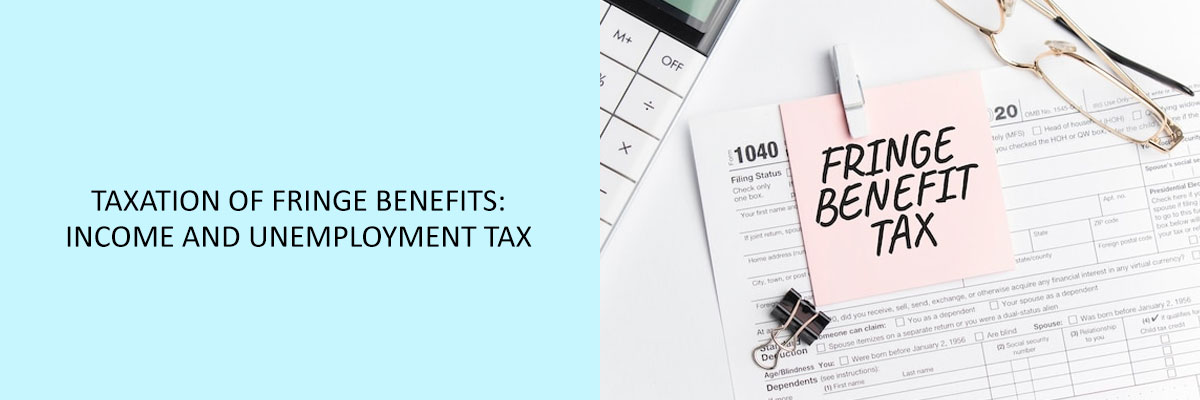The taxation of fringe benefits is a complex area of the tax code. Fringe benefits are a form of compensation that employers offer to their employees. These benefits can include things like free parking, discounts on goods and services, and reimbursement for travel expenses. Fringe benefits can be a valuable tool for employees, but they can also be taxed by the IRS.



This article will provide an overview of how fringe benefits are taxed and what factors affect the taxability of a benefit.
What are Fringe Benefits?
Fringe benefits are any non-cash compensation that an employer provides to employees, such as health insurance, retirement benefits, and vacation time.
Fringe benefits can have a significant impact on an employee’s taxable income. For example, if an employee receives a $1,000 bonus in addition to their regular salary, that bonus would be considered taxable income. In addition, fringe benefits can also affect an employee’s unemployment insurance eligibility. If an employee is eligible for unemployment insurance based on their regular salary and bonus income combined, they may not be eligible if only the bonus income is counted.
What Factors Affect the Taxability of a Benefit?
There are a few factors that affect the taxability of a benefit. The first is whether the benefit is considered taxable income. This includes things like bonuses, commissions, and other forms of compensation. In addition, fringe benefits can also affect an employee’s unemployment insurance eligibility. If an employee is eligible for unemployment insurance based on their regular salary and bonus income combined, they may not be eligible if only the bonus income is counted.
The second factor that affects the taxability of a benefit is how the benefit is taxed. This includes things like whether the benefit is considered taxable income, how it’s taxed, and whether any taxes are deducted from the payment.
How are Fringe Benefits Taxed?
Fringe benefits are taxed in a variety of ways, depending on the type of benefit and the individual’s tax situation. Some benefits, like employer contributions to retirement plans, are considered taxable income and are subject to payroll taxes. Other benefits, like health insurance premiums or reimbursements for commuting expenses, are considered taxable expenses and may be deducted from an employee’s income on their tax return.
Income taxes are typically imposed on the income received from wages, salaries, and other forms of compensation. Fringe benefits, like employer contributions to retirement plans or health insurance premiums, are considered taxable income. This means that these benefits are added to an employee’s taxable wage income and taxed at the regular income tax rate.
Unemployment benefits, like social security or unemployment insurance payments, are also considered taxable income. This means that these benefits are added to an employee’s taxable unemployment compensation earnings and taxed at the regular income tax rate.
Exceptions to the Fringe Benefits Taxation Rules
There are a number of exceptions to the fringe benefits taxation rules. These include:
- The benefits are taxable if they are received in connection with an employment relationship.
- The benefits are not taxable if they are received by an individual who is self-employed and engaged in a trade or business.
- The benefits are not taxable if they are received as a pension or annuity.
- There are also a number of special rules that apply to certain types of benefits.
These include:
- The value of fringe benefits that are provided in connection with an employer’s contribution to a pension or retirement plan is not taxable.
- The value of fringe benefits that are provided in connection with an employer’s contribution to a health insurance plan is not taxable.
- The value of fringe benefits that are provided in connection with an employer’s contribution to a welfare plan is not taxable.
Final Words
The taxation of fringe benefits can be complex, but by understanding the basics of how they are taxed, you can better understand your tax obligations. Fringe benefits are taxed in a variety of ways, depending on the type of benefit and the taxpayer’s income level. For example, income and unemployment taxes may be levied on fringe benefits received by employees, while capital gains taxes may apply to fringe benefits received by retirees. Attend the Compliance Prime webinar to learn more about fringe benefits.


